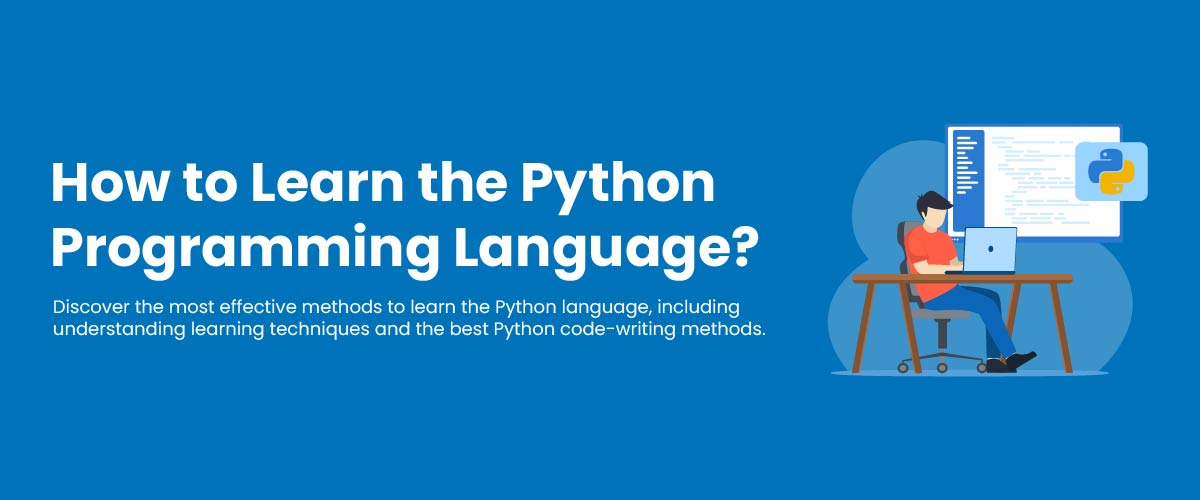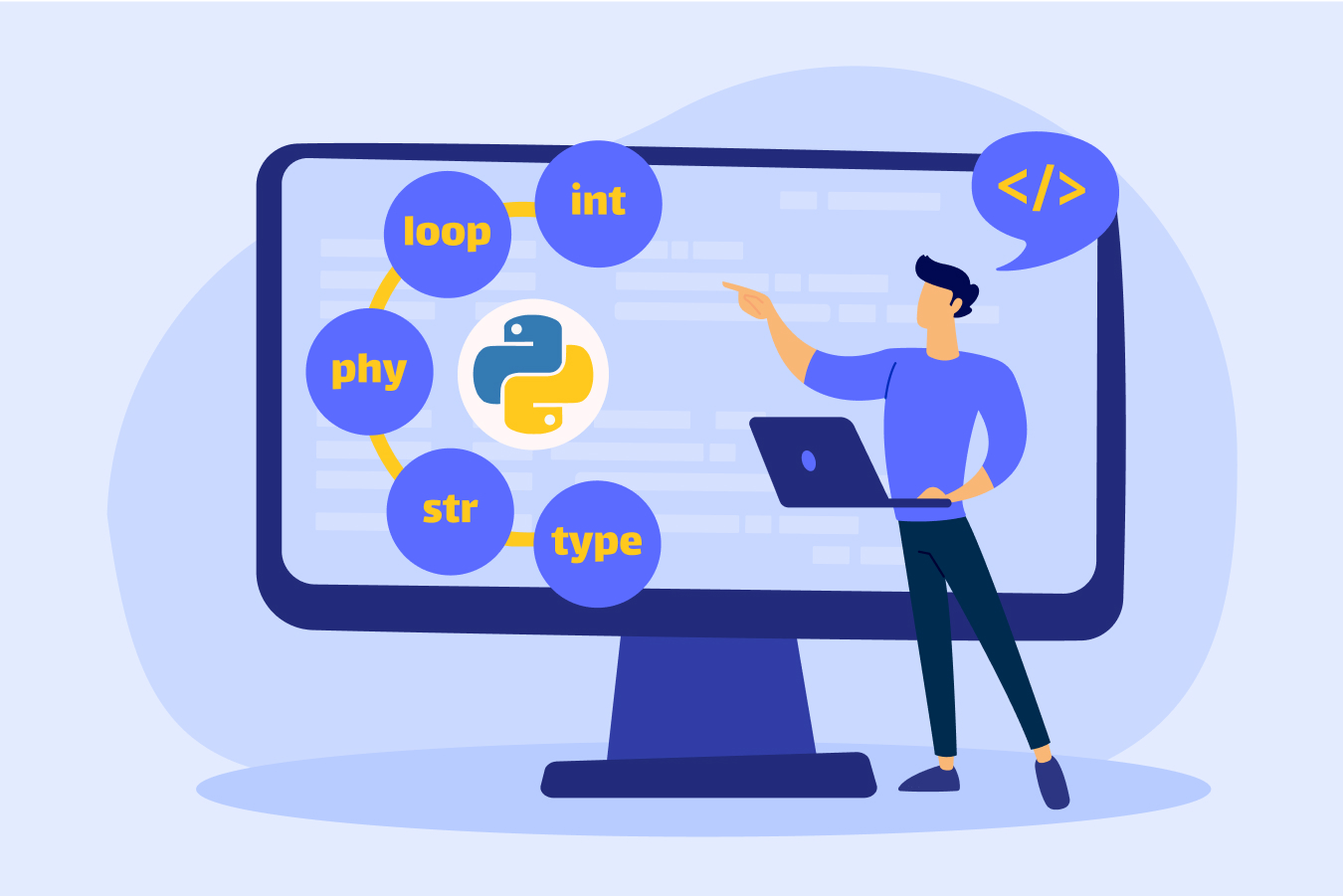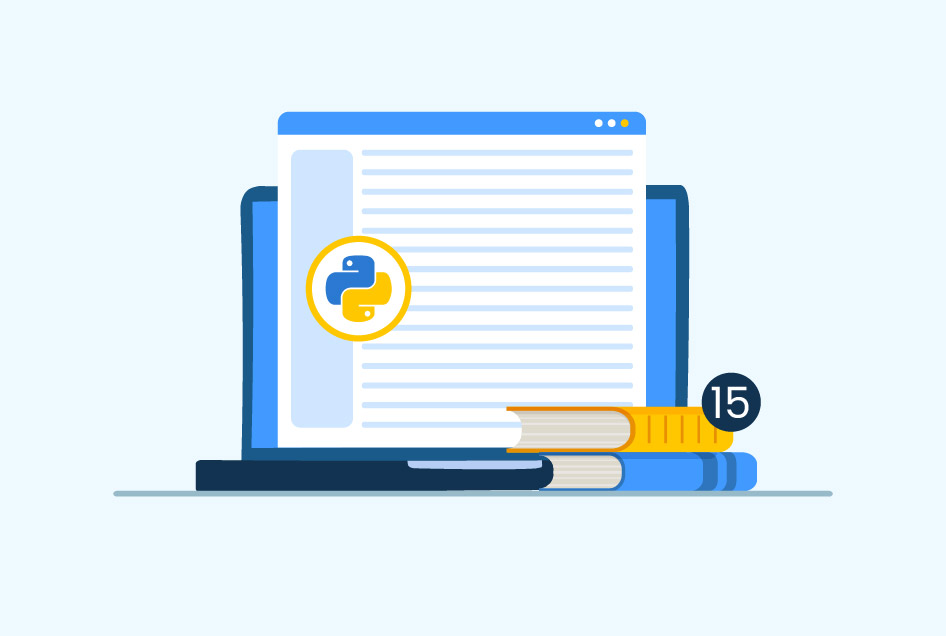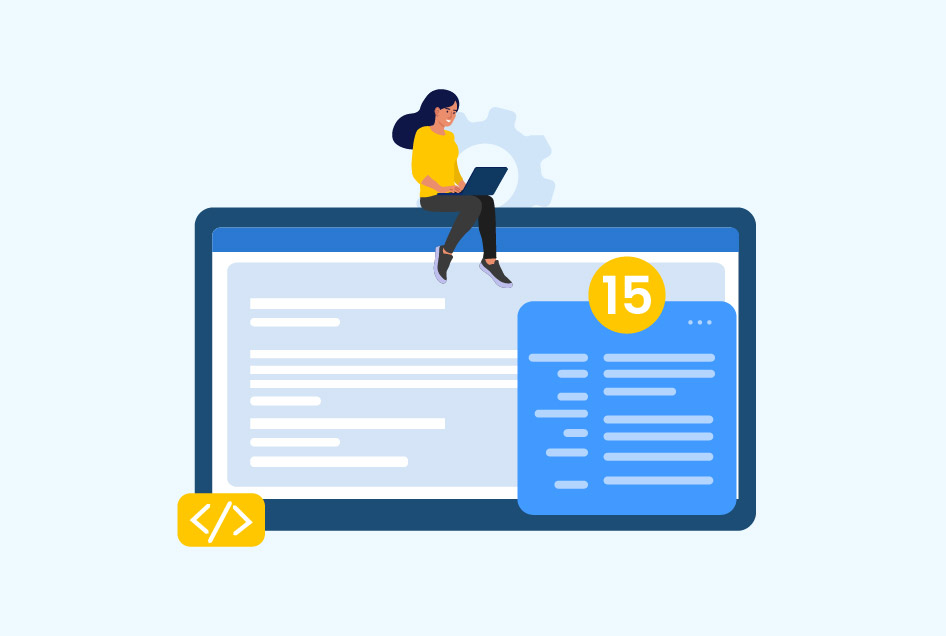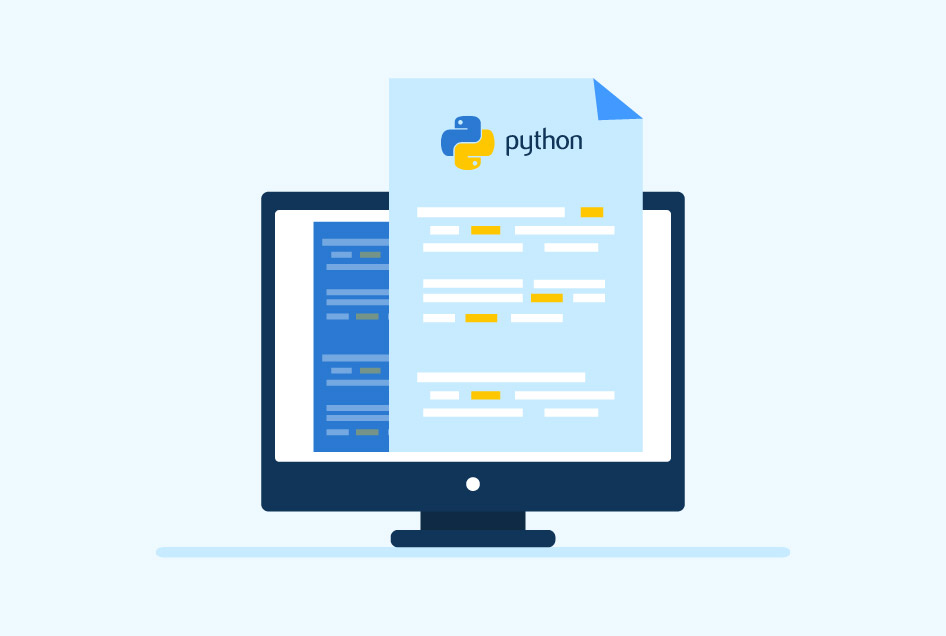How to Learn Python Language?: Practical Steps & Easy Ways
Here is a fun fact I doubt you ever knew about Python. The programming language Python was inspired by the comedy movie “Monty Python’s Flying Circus”. However, you should know that the name Python isn’t a formal tribute, endorsement, or direct homage to the movie.
Guido Van Rossum only wanted a unique, short, and mysterious name for his programming language. If you are looking for the best ways to learn Guido Van Rossum’s unique, short, and mysterious programming language, check out our guide in the following sections on ‘How to learn Python language effectively.’
Practical Steps in Learning Python Language
Below are practical guides for a seamless learning experience of Python.
Step 1: Determine Your Objectives
First and foremost, it is important to determine your reasons for wanting to acquire knowledge in Python. This language has a wide range of uses, making it highly versatile. Therefore, identifying your specific goals for learning Python will allow you to create an effective and personalized learning strategy.
Step 2: Learn Basic Concept
Python emphasizes the readability of code and enables you to convey ideas more concisely. To begin your journey in Python, it is important to grasp fundamental concepts, such as variables, data types, and operators. To learn the basic concept of Python language you can take an online Python course and get grounded on one of the most popular programming knowledge in demand.
Step 3: Be Consistent
Maintaining consistency is crucial in the process of learning a new language. Consider dedicating a specific amount of time to code every day. By committing to coding every day, you can effectively enhance your muscle memory and improve your skills.
Step 4: Practice Simple Python Program
You can enhance your knowledge by creating a basic Python program like the commonly used “Welcome!” script. This will familiarize you with the format and organization of the Python code. Once you have grasped these fundamentals, you can start working on intermediate tasks with a lengthy script. Putting your knowledge into practice immediately can aid in retaining what you have learned.
Step 5: Move to Advanced Python Language
As you become grounded and acquainted with the fundamentals of Python, you can progress to more complex concepts. These are crucial for developing a strong foundational knowledge of Python and will enable you to handle a variety of challenges and scenarios that may arise while using the coding language.
Step 6: Take Intermediate Breaks
When acquiring new knowledge, it is crucial to pause and internalize the concepts. A strategy that can help with this process is working for 35- 40 minutes, followed by a brief break, and then repeating the cycle. These breaks are important for a successful study session, particularly when working with a large volume of new material.
Step 7: Take on a Challenging Task
After mastering the fundamentals of Python, seek out more advanced tasks and projects to enhance your skills. Focus on specific areas that align with your professional aspirations or passions. From data analysis to creating dynamic websites or delving into artificial intelligence, to enhance and diversify your knowledge.
Step 8: Network With Other Programmers
Collaboration is key when it comes to coding, even though it may seem like a solo endeavor. When learning Python, surrounding yourself with fellow learners is crucial for success. By working together and sharing knowledge and techniques, you can enhance your understanding of the language.
Step 9: Teach Newbies
One effective method for learning Python is by teaching it to others. This can be done through various means, such as collaborating with fellow enthusiasts or creating informative blog posts about newly acquired knowledge. Additionally, recording videos where you explain your understanding of a concept or talking out loud while working on code are also helpful ways to solidify your knowledge of the language.
Step 10: Create a Portfolio
Whenever you finish each assignment, gather them together to create a portfolio. This compilation should demonstrate your abilities and passions, while also targeting the specific career or field that piques your interest. Aim to make each project unique and highlight how it demonstrates your ability to solve problems creatively.
Step 11: Contribute to Python Libraries
Numerous Python libraries welcome contributions from the public as open-source projects. In this model, source code is accessible to anyone and can collaborate on a project. Furthermore, several companies also release their open-source projects, which provide opportunities for developers to work with their engineers.
Easiest and Best Ways to Learn Python Language
If you are still skeptical about how to learn the Python language easily, below are the most effective ways to learn Python language.
- Watch Tutorials: Watching tutorials can make learning the Python language easier, especially for those who are new to the language. These guides offer a systematic approach to mastering specific tasks or concepts in Python and serve as valuable resources for beginners.
- Take Online Courses: Taking online Python courses is an excellent method for mastering the programming language at your preferred speed. Internshala provides a well-structured comprehensive course that consists of instructional videos, interactive assessments, and practical assignments to ensure a thorough learning journey.
- Work on Projects: Engaging in projects allows you to apply the knowledge and abilities you have acquired, which enables you to confront unfamiliar obstacles. As you complete each project, consider adjusting strategies and exploring alternative methods for achieving desired outcomes is necessary for enhancing your proficiency in Python programming techniques.
- Read Books on the Python Language: Books are a valuable tool for mastering Python, particularly for individuals who prefer to learn at their own pace. Two top beginner recommendations are Head First Python by Paul Barry and Fluent Python by Luciano Ramalho. These books offer detailed explanations of key concepts in Python, along with numerous opportunities to practice through exercises and projects that enhance your understanding.
Other Programming Languages to Learn alongside Python Languages
Below are relevant languages to consider while learning Python.
- C and CC+: By enrolling in a C and C++ course, you can develop and build a strong programming foundation.
- Javascript: Learning Java alongside the Python language will equip you with the concept of object-oriented programming which enables you to create awesome games.
- React: An online React course will enable you to build seamless applications and master the front-end powerhouse used by Facebook, Netflix, Instagram, etc.
- PLC Programming: With the PLC programming course, you will discover the basics of programmable logic controllers (PLCs), the essential elements of automation, and various ladder logic techniques to create effective PLC programs suitable for a range of industrial automation applications.
- AR/VR: Choosing to do an AR/VR course, you learn how to create innovative AR/VR technology using C# in Unity and begin constructing your own immersive virtual reality world.
- NodeJS: By taking a NodeJs course, you will discover its essential components such as JavaScript fundamentals, asynchronous programming, and various modules. White gaining expertise in this runtime environment that is used by major companies like Netflix, Amazon, and IBM.
Conclusion
Understanding how to learn the Python language is the very step of your programming journey. Whether you are learning as a beginner or an experienced coder, following and incorporating the steps listed above will guide you to achieving mastery in your programming career. Also, there are various programming courses available online which can help you learn programming and add skills to your cv.
Did this blog help you learn the practical aspects of learning the Python language? With proper training and upskilling, you can become a developer and land your dream job.

